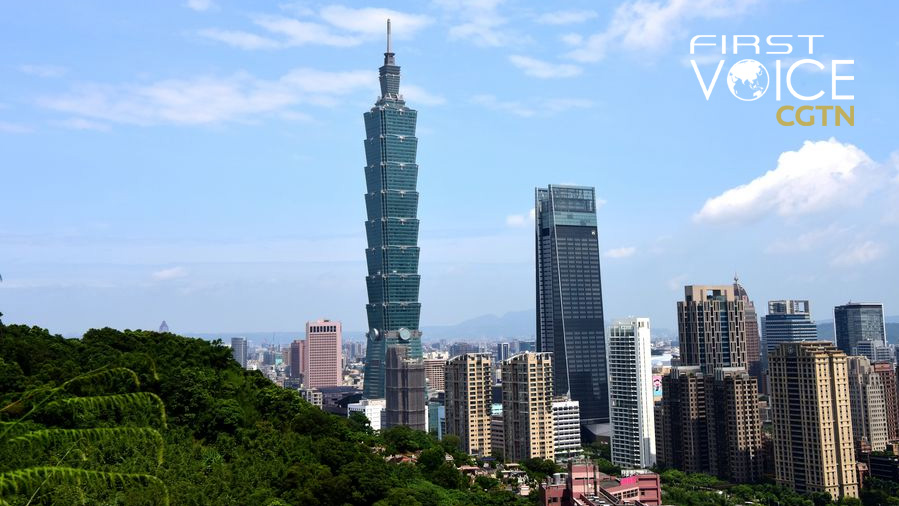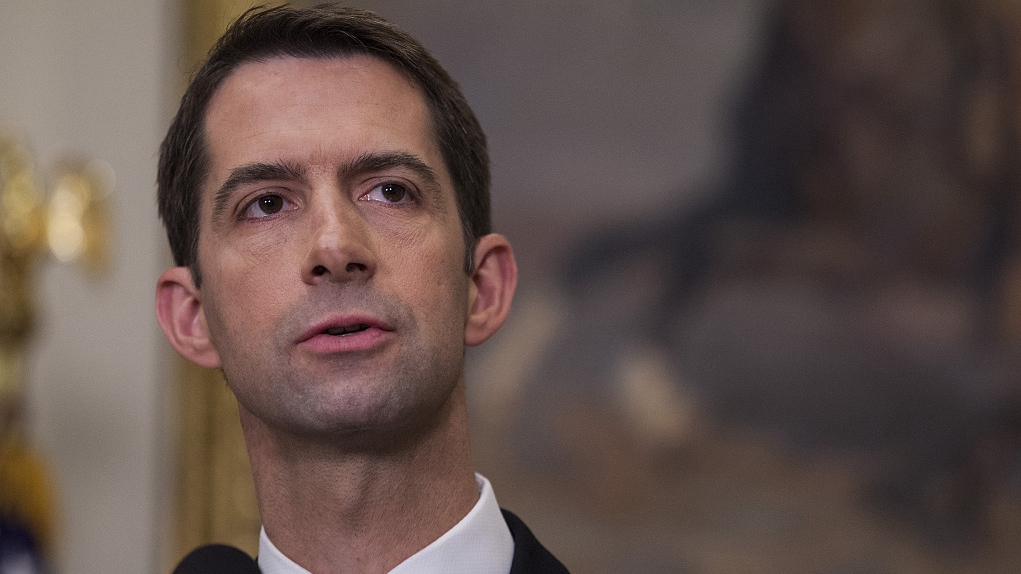
Editor's note: CGTN's First Voice provides instant commentary on breaking stories. The daily column clarifies emerging issues and better defines the news agenda, offering a Chinese perspective on the latest global events.
On Thursday, U.S. Senator Tom Cotton stated it was time for the United States to give China a "crystal clear" warning not to "invade Taiwan." "Time has come to be clear: Replace strategic ambiguity with strategic clarity that the United States will come to the aid of Taiwan."
Cotton, who has been one of the most militant senators against Beijing and also spread conspiracy theories about COVID-19, made the remarks at a Reagan Institute Event while defending a report titled "beat China," which advocates for the decoupling of the two major economies.
To consider such would be a dangerous move by the United States and a betrayal of its diplomatic commitments.
The one-China policy is not negotiable, and as styled in The Economist, Beijing's understanding of this issue concerns a "sacred national mission" – that is to reunify China. In doing so, China has made itself clear that it reserves all means necessary to achieve reunification, and it will not shift from this position.
From the beginning, the People's Republic of China has made national sovereignty and territorial integrity its paramount goal. It represents a break from the past whereby foreign powers, such as the Japanese, the British, and this case the United States, actively sought to divide, exploit and partition China for their own economic and strategic benefits, known as "The Century of Humiliation."
On this premise, since 1949 China's mission has been to say "no more" to this kind of rule and exploitation, and it takes a zero-tolerance approach to attempts to undermine the national sovereignty and territorial integrity of the country.

U.S. Senator Tom Cotton. /VCG
U.S. Senator Tom Cotton. /VCG
The history of Taiwan's recovery from Japanese occupation is irrefutable evidence that the island is an inalienable part of the Chinese territory.
After being defeated in the civil war in 1949, the rump government of Chiang Kai-shek fled to the island and received military protection from the United States navy. This event divided China.
However, in 1971, the People's Republic of China was affirmed by a United Nations Assembly vote to be the only legal and lawful government of the country.
This is the foundation of what is described now as the one-China principle. It is a precondition for formal diplomatic relations with China as a whole. In 1978, the United States made this diplomatic commitment and accepted the one-China principle.
Although it has always affirmed that the cross-straits dispute ought to be resolved peacefully, the idea of pushing against the boundaries of this commitment has gained increasing popularity amongst American politicians.
The Trump and Biden administrations have increasingly shown "support" for Taiwan as a means of attempting to contain the Chinese mainland, deliberately backing Democratic Progressive Party politicians on the island who consolidate formal separatism.
However, no matter what the United States does, China is not going to change positions. To turn back on the one-China principle would be to say that China's territorial integrity and sovereignty don't matter and aren't a serious matter. To go back on that mission would be a discredit to the People's Republic of China and its existence as a whole.
This is why the military dynamic is increasingly invoked, not because China wants to provoke a conflict, but because it is strategically enforcing a red line on the matter. Otherwise would not be taken seriously by the West as it continues to believe that China's sovereignty can be trampled on and disrespected.
The bid to reunify China is a sacred national mission. It is not up for debate. Washington politicians like Cotton, who seek to hinder that mission and violate China's national sovereignty, are taking a dangerous path.
Reunification will be achieved one way or the other, no matter what it takes.
(If you want to contribute and have specific expertise, please contact us at opinions@cgtn.com.)

